Arab League Summit Resolutions, 1967CIE+
Arab states declare “no peace, no negotiation, no recognition” with Israel after their collective defeat in the June 1967 War.

Arab states declare “no peace, no negotiation, no recognition” with Israel after their collective defeat in the June 1967 War.
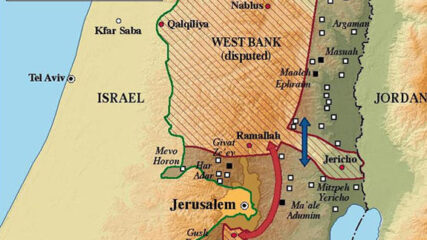
Yigal Allon’s plan for handling the areas captured from Jordan during the just-completed Six-Day War reflects Israel’s previous border vulnerability and seeks a West Bank arrangement that is not a strategic or geographic threat.

Drafted by Minister of Labor Yigal Allon after the June 1967 war, the plan envisages Israeli retention of a series of settlements and military installations along the Jordan Valley as buffers to a potential Arab land attack from the east.
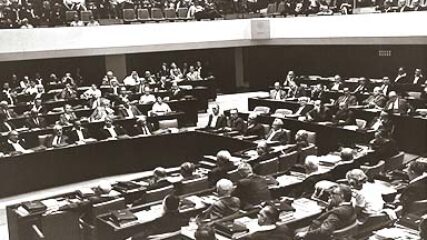
After the June 1967 war, the Israeli government sent word through the United States to Egypt and Syria seeking to jump-start a peace process. Apparently no response was received.
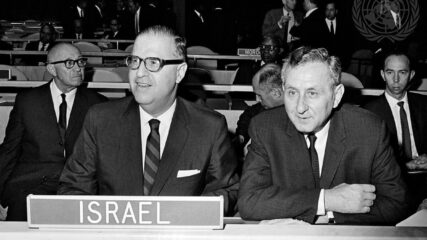
Following the conclusion of the June 1967 War, the Israeli government sent word to Egypt and Syria seeking peace plan that was intended to jumpstart a peace process with Israel’s belligerent neighbors, Egypt and Syria. The messages were sent through the US, but no response was apparently received.

After the Israeli army swept through Sinai in four days, the Egyptian president acknowledges the success of Israel’s pre-emptive strike but blames the U.S. and Britain. Still, he takes responsibility for the Arab defeat and resigns.

The Israeli ambassador to the United Nations delivers a detailed outline of events that will lead to war two days later.

Egyptian President Gamal Abdel Nasser asserts that the conflict with Israel is not over access to the Gulf of Aqaba but the very existence of Israel; Egypt’s foes are Britain and the United States, which support Israel.

With tensions on its borders, Eshkol tries to reassure Israeli public. Instead he gives a “painfully faltering” speech. Popular and party disgruntlement follow, opening the way for Eshkol to turn over the Defense Ministry two days later to General Moshe Dayan.
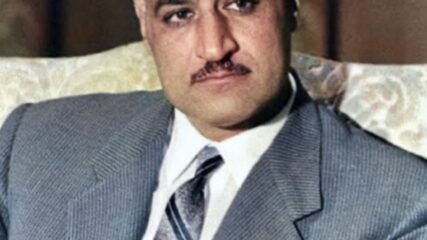
Ten days before the start of the Six-Day War, Egyptian President Gamal Abdel Nasser declares that Egypt, Syria and other Arab states intend to destroy Israel.
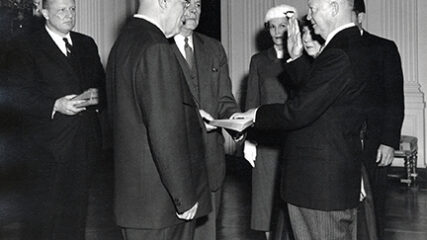
Further reinforcing the Truman Doctrine, the US President promises military or economic aid to any Middle Eastern country resisting Communist aggression.

With crisp analysis, Haganah Commander Yigal Allon, later a Prime Minister of Israel attributes Israel’s successes to multiple factors including the absence of a centralized Arab command, limited Arab military training, underestimating the potential fighting capabilities of local Arabs, and Israel’s success in integrating its citizens into the war effort.
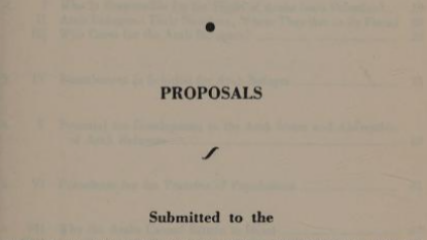
This report submitted to the United Nations at the end of 1951 notes that “some one million Jews have become the victims of accelerated antiSemitism” since 1948 in the Muslim countries of the Arab League and North Africa, “communities which have existed for thousands of years.” The report analyzes the situation for Jews overall and explains restrictions and oppressive measures country by country.
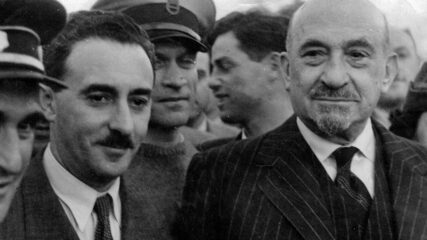
Sharett gives an overview of Israeli foreign policy, key issues, and relationships with UN and Arab states.
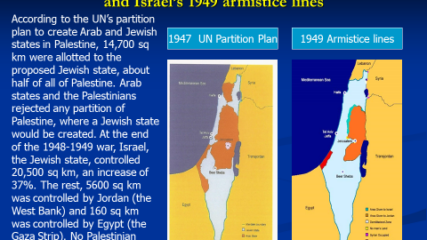
The area of Israel expanded and the potential area for a Palestinian Arab state decreased because of the 1948-49 war, Israel’s War of Independence. The Arab rejection of the 1947 U.N. partition plan thus hurt…
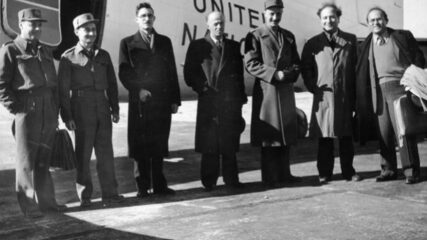
One of four agreements Israel signed in 1949 with Arab neighbors, it does not end the state of war between Israel and Egypt. They do not sign a treaty until 1979.
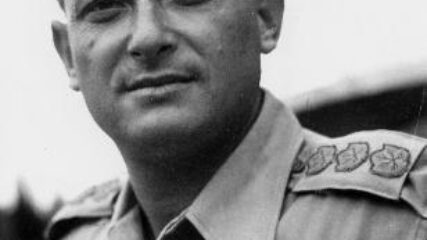
Yigal Alon, born in 1918 in Kfar Tabor, begins his career in the Haganah. Later elected to the Knesset in 1954, he remains a parliament member until his death.
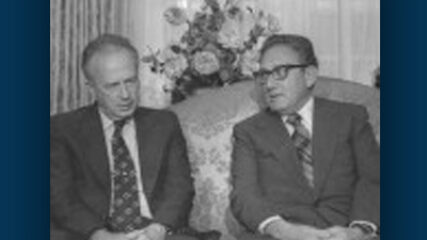
In a Paris meeting, United States Secretary of State Henry Kissinger tells Foreign Minister Hammadi that the United States would not negotiate Israel’s existence but could “reduce its size to historical proportions.”
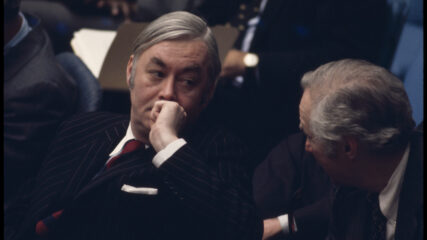
The United Nations passes UN Resolution 3379, which defines Zionism as a form of racism and racial discrimination. It passes with a vote of 72 in favor, 35 against, and 32 abstentions.
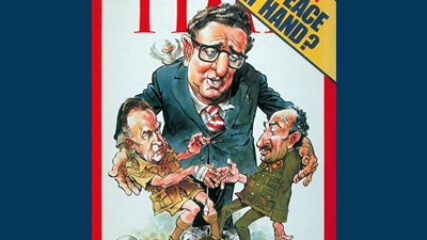
In Geneva, Switzerland, Israel and Egypt sign their Second Disengagement Agreement (Sinai II) following the October 1973 War.
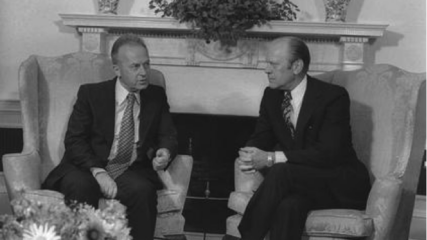
After a breakdown in diplomatic talks between Gerald Ford and PM Yitzhak Rabin, seventy-six Senators sign a letter to the President stressing the importance of both military and economic assistance to Israel.
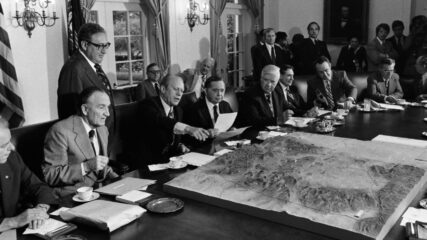
The US undertakes a “reassessment” of the Washington-Israel relationship, creating enormous tension between the US executive branch and the Israeli government.

March 6, 1975 An eight-man Palestine Liberation Organization raid planned by Abu Nidal hits the beach in Tel Aviv around 11 p.m. and, after being spotted by police, attacks the Savoy Hotel. The terrorists kill…
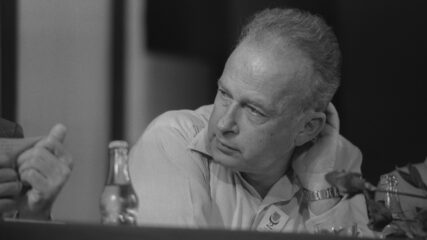
June 3, 1974 Having defeated Shimon Peres in an election for Labor Party leader, Yitzhak Rabin formally succeeds Golda Meir as prime minister when he presents his coalition government to the Knesset for approval. He…